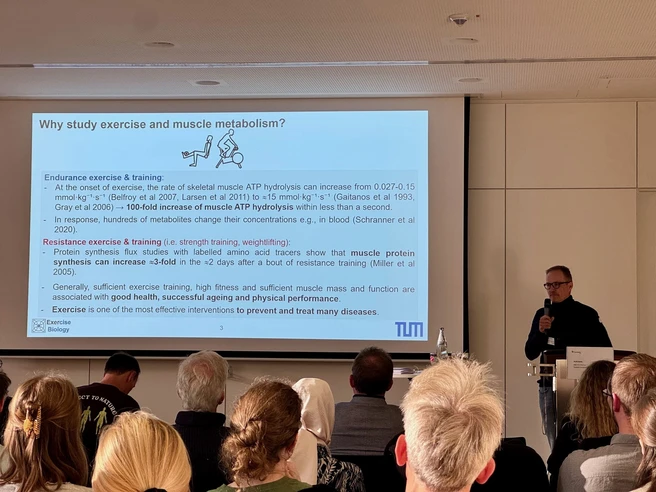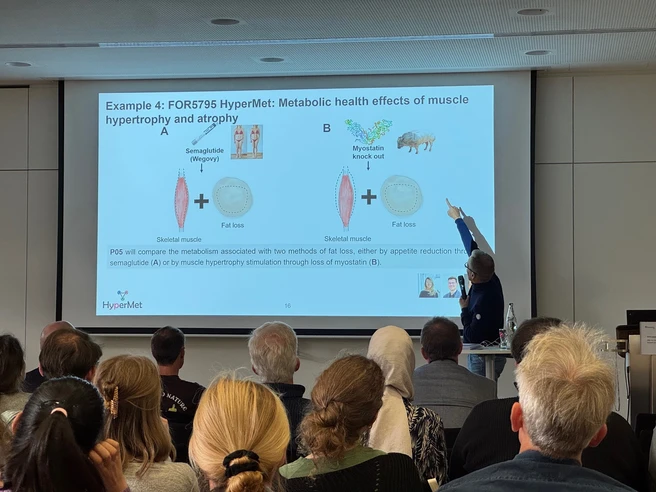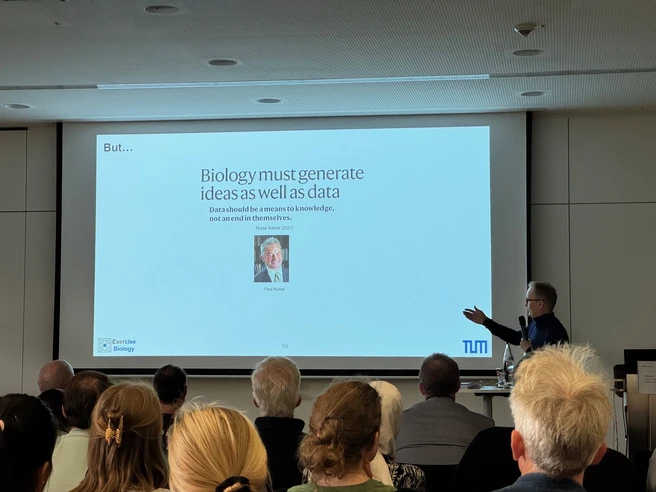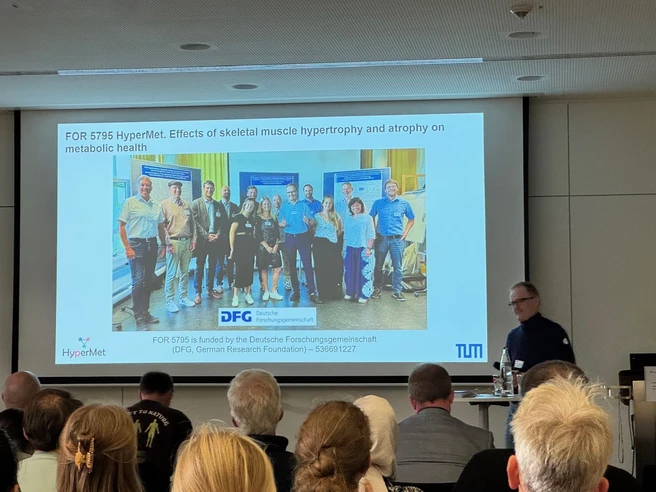In the DGMet Annual Meeting 2025 held in Hannover, Prof. Dr. Henning Wackerhage (Technical University of Munich, School of Medicine and Health, Chair of Exercise Biology) chaired the session on skeletal muscle and exercise metabolism. As an introduction to the session, he gave a talk titled “Why and how study exercise & muscle metabolism?”.
In his presentation, he outlined the physiological and biochemical responses to endurance and resistance exercise, emphasizing the rapid and extensive changes in metabolite concentrations and protein synthesis. He highlighted how exercise metabolomics can be used to discover and characterize previously unknown metabolites, such as N-lactoyl phenylalanine, and discussed the potential of metabolic modeling to simulate complex phenomena like energy fluxes and lactate dynamics.
A central part of the talk focused on the DFG-funded research unit FOR5795 HyperMet, which investigates the metabolic health effects of skeletal muscle hypertrophy and atrophy. Prof. Wackerhage presented experimental data and modeling approaches that demonstrate how muscle growth and loss influence systemic metabolism, including glucose regulation and fat mass. He also introduced advanced methods of metabolic research used within HyperMet, such as stable isotope tracer studies, arteriovenous metabolomics, and metabolic imaging.
The presentation concluded with a call to further develop exercise metabolomics in Germany and to use metabolomics data as a tool for gaining biological insight rather than as an end in itself.



